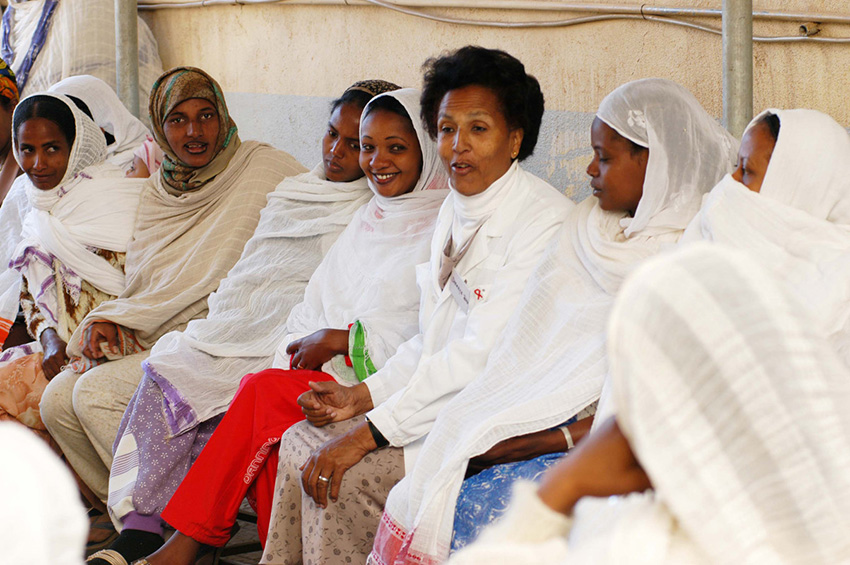
Photo Credit: S.J. Staniski/FHI 360
A version of this post originally appeared on Locus. Reposted with permission. Locus is a coalition of organizations dedicated to advancing evidence-based solutions to global development challenges that are integrated, driven by local communities and based on shared measures. FHI 360 is a member.
Here’s a development scenario you’re probably familiar with: Imagine a young girl growing up in a remote rural area, raised in a poor family. Girls here are not typically encouraged in the same way as boys are to imagine themselves having exciting future careers, nor even the more vanilla option of working at the sole local factory. Virtually all the local authority figures are men. Contraception (especially for adolescents) carries a shameful stigma and is difficult to access. The girl’s school is chronically underfunded. Some of her peers get pregnant early, some drop out of school, some marry early. In short, she faces several financial and social barriers to a healthy, stable and productive future. Now be honest: were you picturing a young girl from a poor country in Africa or Asia? If so, you’re wrong.
That girl was me. Who grew up in America and is now a healthy, educated woman with a successful career. Does now knowing that the girl in the story was American make the happy ending less surprising? Probably so, and that illustrates a fundamental problem with the way we approach empowering women and girls in the developing world. Indeed, clearly the privilege of growing up in America provided me with a deeply significant advantage in overcoming those initial roadblocks to a healthy and happy life. But what about all of the other various ingredients, that when combined together became my recipe for success? Shouldn’t girls and women be supported in the same way, no matter where they live? Let’s break it down.
First, I was encouraged to pursue higher education despite a lack of family precedent or financial resources. Fortunately, there is widespread agreement that girls and young women in the developing world should be encouraged to do the same, and promising efforts are underway to ensure that more girls can finish secondary school and have access to higher education.
Next, using family planning allowed me to prevent unintended pregnancy while I finished my education and then began a career. I am not alone in recognizing the power of contraception for realizing my goals. In 2011, the Guttmacher Institute surveyed a large number of women in the United States, and a majority reported that access to contraceptives had enabled them to take better care of themselves or their families, support themselves financially, complete their education, and get or keep a job. And yet, improving access to contraception remains an underutilized strategy for ensuring that young girls and women in developing countries can similarly plan their futures and achieve their dreams.
Shouldn’t girls and women be supported in the same way, no matter where they live? Click To TweetFinally, from a young age my mother instilled in me the importance of being financially independent. Doing so requires a combination of being gainfully employed and empowered to make financial decisions. And yet, too few girls around the world are exposed to a broad range of potential careers, and too few women are given decisionmaking authority over their own or the household’s income. Fortunately, efforts are underway to change that through diverse workforce development and economic empowerment programs.
In the end, by being lucky enough to receive a holistic mix of positive education, health and livelihood messaging and support, I was able to overcome a whole range of challenges and thrive. If any one of those elements had been removed, I have a hard time imagining I’d be where I am now. And that’s no different for other young women, wherever they may live. For too long, we have collectively approached the issues faced by girls and women living in developing countries through narrowly fragmented perspectives. When we focus on health without addressing education, or on education without economic empowerment, the more opportunities we’ve missed to amplify impact or see long-term results.
On this International Women’s Day, I believe we can do better. Several efforts using an intentionally holistic approach to support young women can offer inspiration, from mentoring and positive youth development, to integrated education and health programs. The faster we look at women and girls less as laundry lists of distinct problems and more as real people with complex lives and ideas, the faster we’ll see healthier and more productive families, communities, economies and societies around the world.
